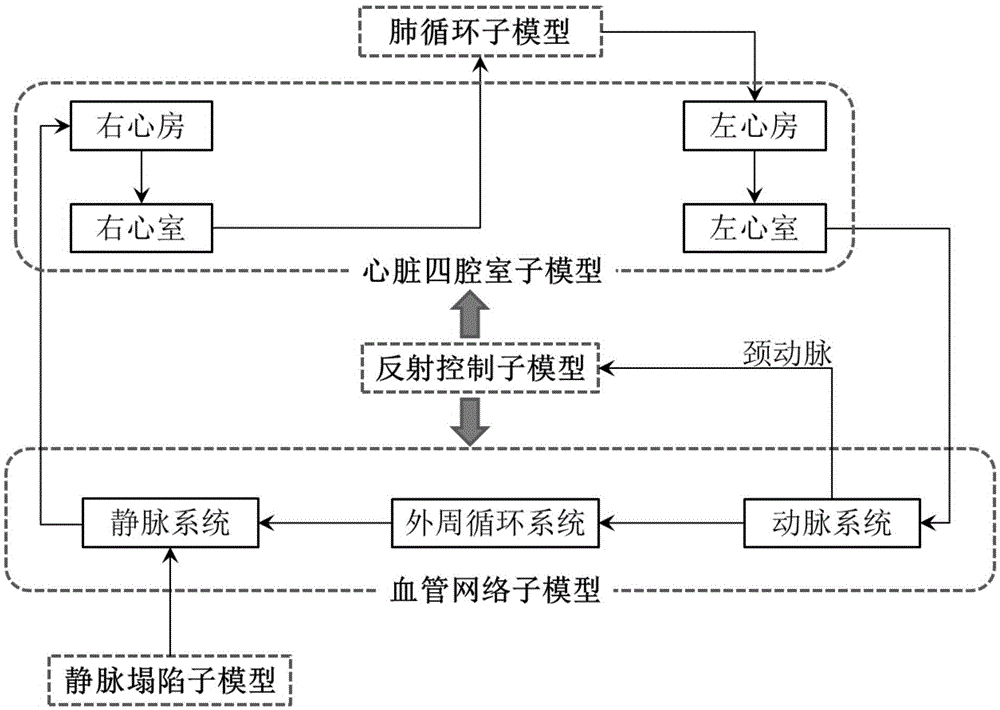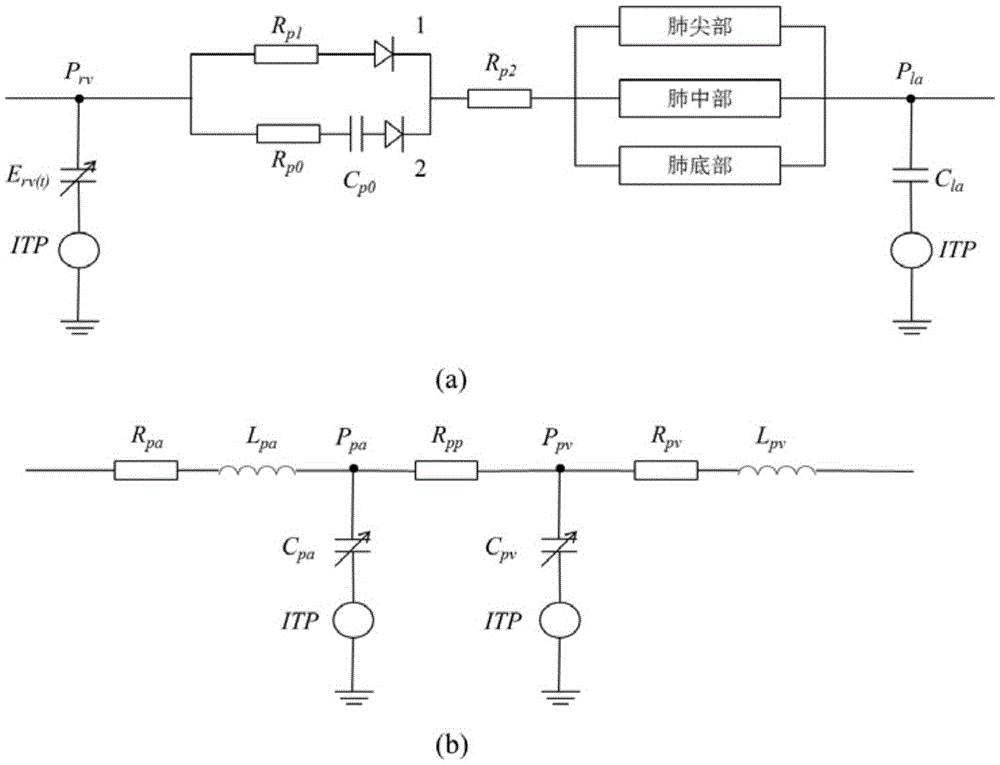Distributed Cardiovascular System Simulation Model
A system simulation and cardiovascular technology, applied in the field of physiological signal simulation, can solve the problems of not being able to understand the interaction relationship more deeply and not reflecting the different effects of the cardiovascular system.
- Summary
- Abstract
- Description
- Claims
- Application Information
AI Technical Summary
Problems solved by technology
Method used
Image
Examples
Embodiment Construction
[0024] A distributed cardiovascular system simulation model, including a heart four-chamber sub-model, a pulmonary circulation sub-model, a blood vessel network sub-model, a reflex control sub-model, and a venous collapse sub-model.
[0025] The four-chamber submodel of the heart contains two parts: the left ventricle connected to the left atrium and the right ventricle connected to the right atrium, driving the systemic circulation and the pulmonary circulation respectively. Since the left and right centers are similar in structure and function, two equivalent networks with the same structure but different parameters are used in the model. The time-varying elastic model proposed by Suga and Sagawa is used to simulate. Taking the left ventricle as an example, a time-varying elastic coefficient E can be used for the relationship between ventricular pressure-volume change over time lv (t) to describe. At some point in the cardiac cycle, the left ventricular pressure P lv (t) can b...
PUM
 Login to View More
Login to View More Abstract
Description
Claims
Application Information
 Login to View More
Login to View More - R&D
- Intellectual Property
- Life Sciences
- Materials
- Tech Scout
- Unparalleled Data Quality
- Higher Quality Content
- 60% Fewer Hallucinations
Browse by: Latest US Patents, China's latest patents, Technical Efficacy Thesaurus, Application Domain, Technology Topic, Popular Technical Reports.
© 2025 PatSnap. All rights reserved.Legal|Privacy policy|Modern Slavery Act Transparency Statement|Sitemap|About US| Contact US: help@patsnap.com



